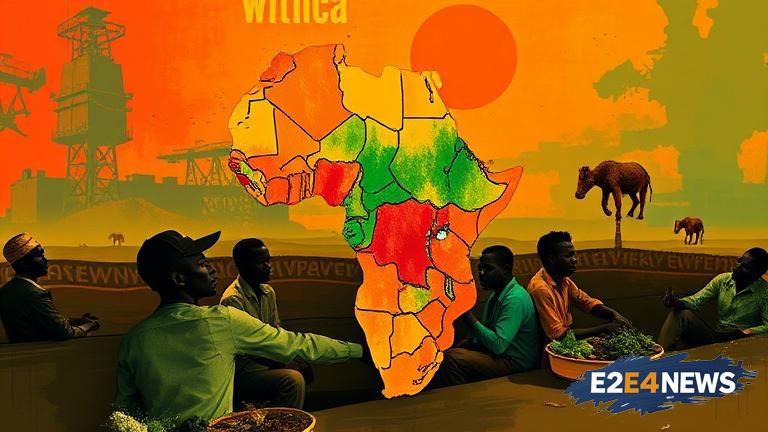The GHI BConverge 2025 conference has brought together industry experts and stakeholders to discuss the future of African commodity trade. With a focus on refining, financing, and integrating trade, the event aims to unlock the continent’s vast economic potential. Africa is home to an abundance of natural resources, including oil, gas, minerals, and agricultural products, which are in high demand globally. However, the continent’s commodity trade has been hindered by various challenges, including inadequate infrastructure, limited access to finance, and inefficient supply chains. To address these challenges, GHI BConverge 2025 has outlined several strategies, including the development of specialized financing instruments, the creation of digital platforms to facilitate trade, and the implementation of sustainable and responsible trade practices. The conference has also emphasized the importance of regional integration, highlighting the need for African countries to work together to create a unified and cohesive trade environment. Furthermore, the event has showcased innovative technologies and solutions that can be leveraged to improve the efficiency and transparency of commodity trade, such as blockchain and artificial intelligence. By adopting these strategies, African countries can increase their participation in global commodity markets, improve their economic competitiveness, and reduce their dependence on external factors. The conference has also highlighted the need for African countries to diversify their economies, reducing their reliance on a single commodity or industry. This can be achieved through the development of downstream industries, such as manufacturing and processing, which can add value to raw materials and create new job opportunities. Additionally, the event has emphasized the importance of investing in human capital, particularly in the areas of trade finance, logistics, and supply chain management. By building the skills and capacity of African professionals, the continent can develop a more competitive and sophisticated trade environment. The GHI BConverge 2025 conference has also provided a platform for industry stakeholders to network and collaborate, facilitating the formation of new partnerships and business opportunities. As the African commodity trade landscape continues to evolve, it is essential for industry players to stay informed about the latest trends, challenges, and opportunities. The conference has demonstrated the commitment of African leaders and industry stakeholders to driving economic growth and development through the refinement, financing, and integration of commodity trade. With the implementation of the strategies outlined at GHI BConverge 2025, Africa can unlock its vast economic potential, reduce poverty, and improve the living standards of its citizens. The conference has also highlighted the need for African countries to engage with international partners and organizations, such as the African Development Bank and the World Trade Organization, to access technical assistance, financing, and expertise. By working together, Africa can create a more integrated, efficient, and sustainable commodity trade environment, driving economic growth and development across the continent. The GHI BConverge 2025 conference has set the stage for a new era of cooperation and collaboration in African commodity trade, and its outcomes are expected to have a lasting impact on the continent’s economic development. As the continent continues to navigate the complexities of global commodity markets, the strategies outlined at GHI BConverge 2025 will serve as a roadmap for African leaders and industry stakeholders. The conference has demonstrated that with the right policies, investments, and partnerships, Africa can overcome the challenges facing its commodity trade and achieve its full economic potential. In conclusion, the GHI BConverge 2025 conference has provided a unique opportunity for industry stakeholders to come together and shape the future of African commodity trade. The event has highlighted the need for innovation, cooperation, and investment in the sector, and its outcomes are expected to drive economic growth and development across the continent.
